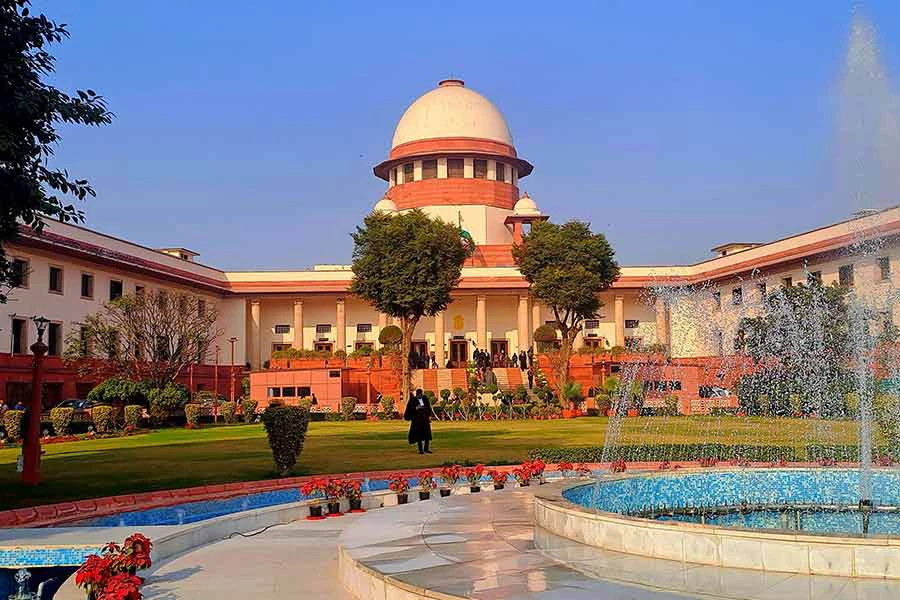The Supreme Court has exercised its extraordinary constitutional powers under Article 142 of the Constitution to acquit four convicts sentenced to life in jail for a murder dating back 35 years, although only one of them had filed an appeal.
The court noted that the prosecution’s claims were “full of contradictions and inherent improbabilities”.
A bench of Justice Sanjay Karol and Justice Sandeep Mehta passed the judgment on the appeal filed by Kannaiya challenging the concurrent findings of guilt recorded against him by a sessions court and affirmed by Madhya Pradesh High Court.
Under criminal law jurisprudence, every individual convict has to file an appeal against the conviction. But in this case, the three other convicts – Govardhan, Raja Ram and Bhima – had not done so. Under normal circumstances, only Kannaiya was entitled to be acquitted, but the top court exercised its extraordinary powers under Article 142, which empowers it to pass any order, judgment or decree to render complete justice, to acquit all four in one go.
In October 1999, the first additional sessions judge of Mhow in Indore had sentenced the four to life imprisonment in a murder case. In 2012, Madhya Pradesh High Court affirmed their conviction and sentence.
It was the case of the prosecution that the four convicts, armed with axes and other lethal weapons, killed Ramesh when he resisted their attempts to demolish his hut in Chak village on September 28, 1990.
Allowing the appeal, Justice Sandeep Mehta of the Supreme Court wrote in the judgment: “In the present case, the prosecution has failed to establish the genesis of the occurrence and the place of incident with any degree of certainty. The FIR speaks of the demolition of a hut by the accused persons near the residence of Jagya (PW-3).
“However, Madho Singh (PW-5) shifted the crime scene to nearby his own house and denied any demolition. Puniya (PW-12) claimed that the assault occurred in the field of Gopya. Both of these witnesses (PW-5 and PW-12) have contradicted each other as well as the documentary evidence, viz. the site inspection plan (Exh. P-6). They do not acknowledge each other’s presence at the crime scene. Such conflicting versions cannot co-exist within a credible narrative.
“The suppression of the genesis of occurrence and the shifting of the place of incident demolish the very substratum of the prosecution case.”
The apex court said it would not be safe to uphold the conviction of the accused-appellant and the three co-accused “as the testimony of the so-called eyewitnesses Madho Singh (PW-5) and Puniya (PW-12) is full of contradictions and inherent improbabilities”.
It added: “Since the entire case of the prosecution has fallen, all four convicted accused persons are entitled to be extended the benefit of doubt. Hence, we are inclined to extend the benefit of this judgment, in exercise of our powers under Article 142 of the Constitution of India, 1950, to the three co-accused, namely, Govardhan, Raja Ram and Bhima, who have not challenged their conviction before this Court.”
“Accordingly, the appellant and the said co-accused are acquitted of the charges. They shall be released from custody forthwith, if not wanted in any other case. The appeal is, accordingly, allowed.”
